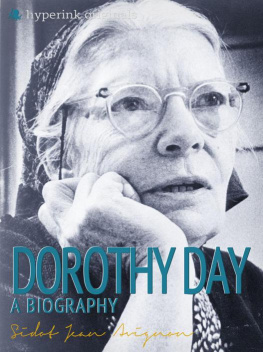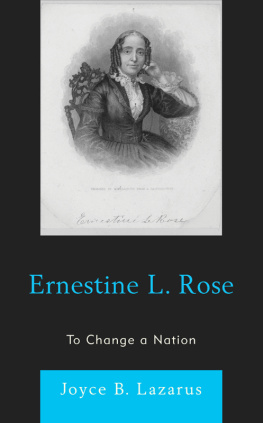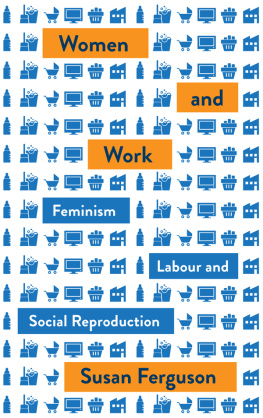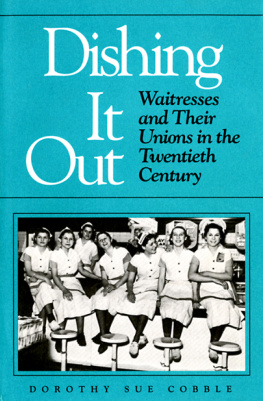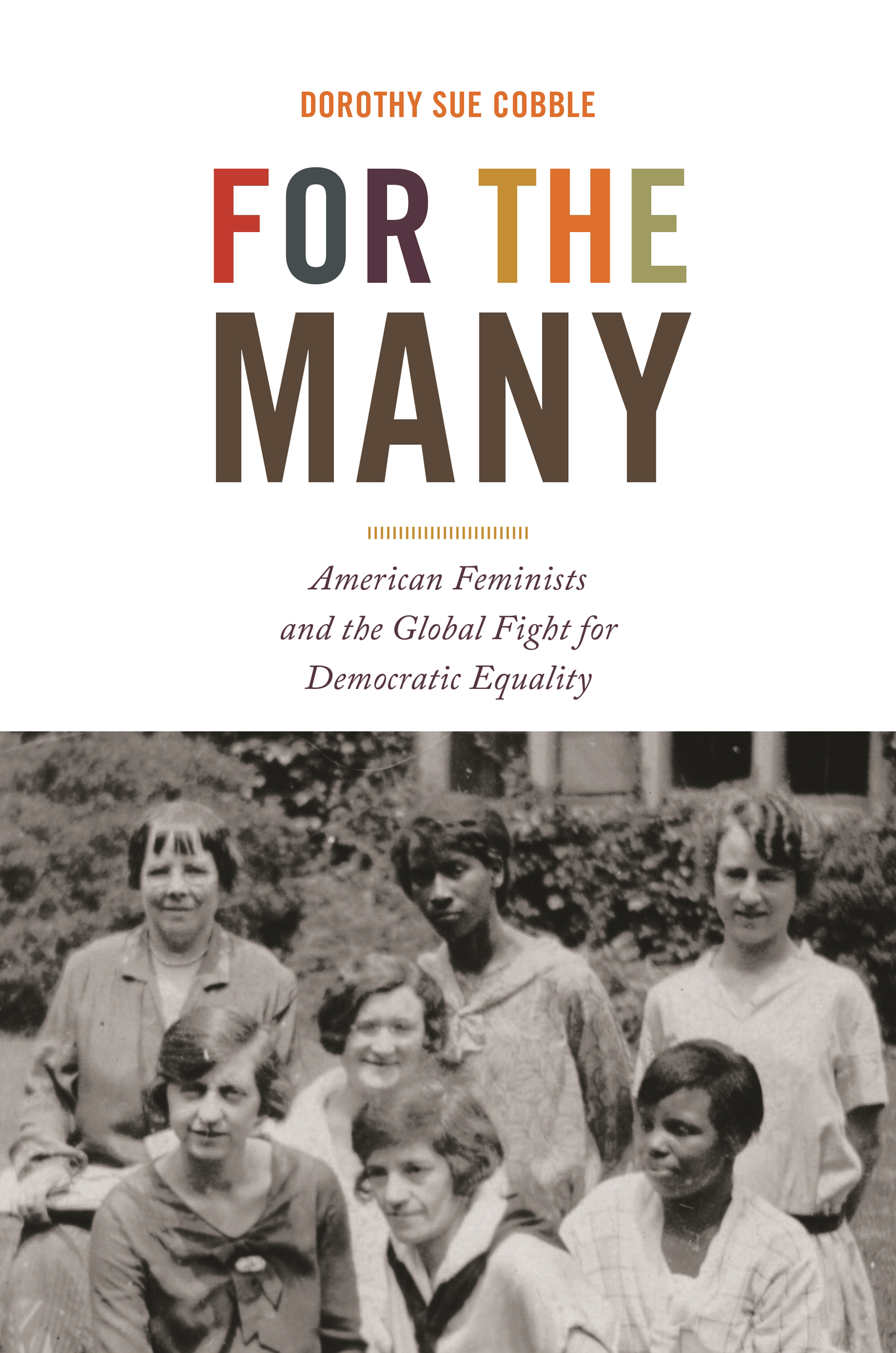FOR THE MANY
AMERICA IN THE WORLD
Sven Beckert and Jeremi Suri, Series Editors
Dorothy Sue Cobble, For the Many: American Feminists and the Global Fight for Democratic Equality
Roberto Saba, American Mirror: The United States and Brazil in the Age of Emancipation
Katy Hull, The Machine Has a Soul: American Sympathy with Italian Fascism
Stefan Link, Americas Antagonists: Making Soviet and Nazi Fordism in the Global Thirties
Sara Lorenzini, Global Development: A Cold War History
Michael Cotey Morgan, The Final Act: The Helsinki Accords and the Transformation of the Cold War
A. G. Hopkins, American Empire: A Global History
Tore C. Olsson, Agrarian Crossings: Reformers and the Remaking of the US and Mexican Countryside
Kiran Klaus Patel, The New Deal: A Global History
Adam Ewing, The Age of Garvey: How a Jamaican Activist Created a Mass Movement and Changed Global Black Politics
Jrgen Osterhammel and Patrick Camiller, The Transformation of the World: A Global History of the Nineteenth Century
Edited by Jeffrey A. Engel, Mark Atwood Lawrence & Andrew Preston, America in the World: A History in Documents from the War with Spain to the War on Terror
Donna R. Gabaccia, Foreign Relations: American Immigration in Global Perspective
For a full list of titles in the series, go to http s: / /press.princeton.edu/catalogs/series/title/america-in-the-world.html
For the Many
AMERICAN FEMINISTS AND THE GLOBAL FIGHT FOR DEMOCRATIC EQUALITY
DOROTHY SUE COBBLE
PRINCETON UNIVERSITY PRESS
PRINCETON & OXFORD
Copyright 2021 by Princeton University Press
Princeton University Press is committed to the protection of copyright and the intellectual property our authors entrust to us. Copyright promotes the progress and integrity of knowledge. Thank you for supporting free speech and the global exchange of ideas by purchasing an authorized edition of this book. If you wish to reproduce or distribute any part of it in any form, please obtain permission.
Requests for permission to reproduce material from this work should be sent to
Published by Princeton University Press
41 William Street, Princeton, New Jersey 08540
6 Oxford Street, Woodstock, Oxfordshire OX20 1TR
press.princeton.edu
All Rights Reserved
Library of Congress Cataloging-in-Publication Data
Names: Cobble, Dorothy Sue, author.
Title: For the many : American feminists and the global fight for democratic equality / Dorothy Sue Cobble.
Description: Princeton, New Jersey : Princeton University Press, 2021. | Series: America in the world | Includes bibliographical references and index.
Identifiers: LCCN 2020047372 (print) | LCCN 2020047373 (ebook) | ISBN 9780691156873 (hardback) | ISBN 9780691220598 (ebook)
Subjects: LCSH: WomenPolitical activityUnited States20th century. | Women social reformersUnited States20th century. | Feminism United StatesHistory20th century. | FeministsUnited StatesBiography. | EqualityUnited StatesHistory20th century. | DemocracyUnited States History20th century.
Classification: LCC HQ1236.5.U6 C63 2021 (print) | LCC HQ1236.5.U6 (ebook) | DDC 320.082/0973dc23
LC record available at https://lccn.loc.gov/2020047372
LC ebook record available at https://lccn.loc.gov/2020047373
Version 1.0
British Library Cataloging-in-Publication Data is available
Editorial: Priya Nelson, Thalia Leaf
Jacket Design: Layla Mac Rory
Jacket image: Faculty and students from the Bryn Mawr Summer School for Women Workers in Industry, Bryn Mawr College Special Collections, Photo Archives, SSWWI_00079
For Florika, and her gifts from afar
For there can be neither freedom, peace, true democracy, or real development without justice.
MARY MCLEOD BETHUNE, FROM HER SPEECH CLOSED DOORS, 1936
It takes all the brains that humanity can muster to operate a democracy.
MARY RITTER BEARD, LETTER TO ETHEL WOOD, AUGUST 9, 1950
CONTENTS
PROLOGUE
From Equal Rights to Full Rights

Leonora OReilly. Pencil on paper, 1912, by Wallace Morgan. Courtesy of the National Portrait Gallery, Smithsonian Institution.
For the Many is a story of how women changed American politics and moved the United States and the world in a more egalitarian, social democratic direction. A politics for the many, not the few, predominated among politically active US women for much of the twentieth century. Understanding how they and their global allies created a more just and inclusive democracy changes the way we think about the past and future of American politics and Americas relation to the world. Over the course of the last century and against great odds, the women profiled in For the Many articulated a transforming social vision, moved into positions of economic and political power at home and abroad, and enacted reforms of lasting value.
For the Many tells the story of individual women. Yet it is not a book celebrating individual heroism or the deeds of great women. It is what might be called a collective biography. Famous womenJane Addams, Eleanor Roosevelt, and Frances Perkins, to name a fewgrace these pages and were indispensable to the intellectual and political revolutions of their day. But just as much attention is given to other women, many from less privileged backgrounds, who traveled alongside them. The courage, inventiveness, and stamina of women like Rose Schneiderman, Mary McLeod Bethune, Frieda Miller, Maida Springer, Esther Peterson, and countless others propelled the struggle for democratic equality. This is a story of women, famous and not so famous, who acted together to change the world.
I began my research thinking the egalitarian, social democratic traditions of American women, little understood and often underestimated, worthy of reconsideration. After more than a decade I feel that way even more strongly. Today, much of what the women in For the Many believed and accomplished is under assault. Yet as writer Zadie Smith insisted in 2016, as she accepted a literary prize a few days after Donald Trumps election to the US presidency, history is not erased by change, and the examples of the past still hold out new possibilities for all of us.
The women at the heart of this book sought womens rights in a fairer, more democratic world. They were feminists because they believed women faced disadvantages as a sexa perspective not widely shared in their dayand they sought to end those disadvantages. Yet they wanted more than equality between men and women. They wanted a world where all women and men could thrive. To capture their multi-stranded politics, I refer to them throughout the text as full rights or social democratic feminists. I adopt the modifier full rights, their phrase, to foreground their desire for the full array of rights and their belief that civil and political rights are intertwined with social and economic. Real equality, they judged, must be substantive, universal, and multidimensional. I place them in the social democratic tradition because they held fast to economic and political democracy, sought to curb the power of elites, and believed progress must be social.
Yet full rights feminists and their social democratic politics turn up under different labels as For the Many moves through the twentieth century: socialist or progressive in the early decades, New Deal liberal or social democrat in the middle decades, and left-liberal Democrat or democratic socialist in the 1960s and after. Some labels persist; others drop by the wayside. I adopt these and other labels when appropriate, but not without trepidation. Our political labels, past and present, are frustratingly imprecise and change meaning over time. Nor do such labels adequately convey the complexity, contradictions, or dynamism of the politics of individual people or of the communities in which they lived and worked. But whatever their label, the central figures in


